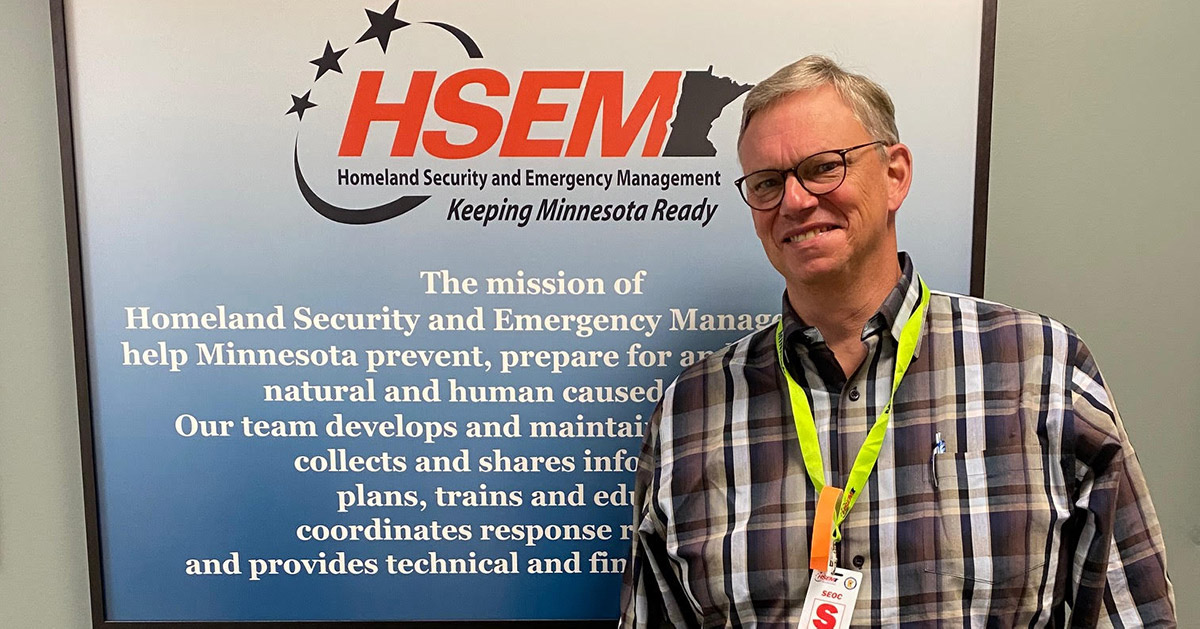Vice President, Strategy for CentraCare & Liaison Officer for Health Coordination for the Minnesota State Emergency Operations Center
Sartell, MN
“Although the circumstances are challenging, I find energy in the creativity that has emerged during this crisis to find non-traditional solutions.”
In what ways are you working on or responding to the COVID-19 outbreak?
I was asked to join the response efforts for Minnesota COVID-19 at the State Emergency Operations Center in St. Paul. I had been a regional administrator for hospital preparedness and could bridge the worlds of emergency management and hospital operations at the state level. As a Liaison Officer for Health Coordination, I brief with the Governor’s staff and hospital CEOs daily and help match resources between the state and private sector healthcare. Our objective is to assure that Minnesota has adequate hospital resources to care for all patient needs during the COVID-19 pandemic. This includes having ICU and ventilator capacity for any surge in COVID-19 patients.
How has your public health education prepared you for this situation?
The School of Public Health Master of Healthcare Administration program provided me the foundation I use every day in both this current role and in my executive role at CentraCare: problem solving, relationship development, and leadership. I have found that listening to understand and spending the time to define a problem statement are key in developing and successfully executing on plan.
The value of the University of Minnesota MHA alumni network is extremely important during the pandemic when decisions are made quickly and communication is difficult. Many of the key leaders in health systems in Minnesota are fellow Minnesota grads and through that there is mutual credibility and trust during times of crisis.
What are your thoughts about the current state of public health in relation to COVID-19?
Public health in Minnesota has good plans and leadership but lacks the funding and human resources to execute a strategy without a partnership with private hospitals and clinics. The health systems have to be the arms and legs of any public health response.
How has COVID-19 impacted your life?
I now work 90 miles away from my home. My colleagues are coming from a variety of settings: private health care, military, homeland security, emergency management, and state government. The challenges of assuring we have the resources we may need are many, and while I thrive on challenge, there is great frustration with so much that is beyond our control, such as everyone in the world needing nasopharyngeal swabs at the same time.
Although the circumstances are challenging, I find energy in the creativity that has emerged during this crisis to find non-traditional solutions.
What have you learned about yourself through this experience?
On the personal side I haven’t done any shopping and really haven’t missed anything. We can live on a lot less than what we thought was necessary.
Professionally, I have learned that Minnesotans and especially Minnesota hospitals will rise to the occasion and meet the challenges of whatever we face.

